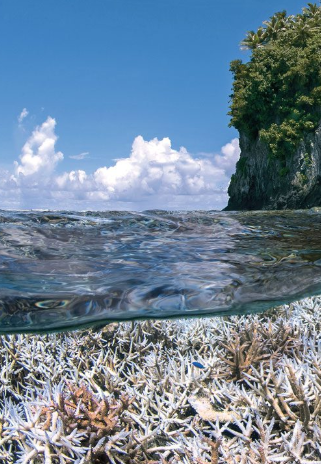Recent bleaching reviewed
 The Great Barrier Reef is bleaching faster than it can recover, scientists warn.
The Great Barrier Reef is bleaching faster than it can recover, scientists warn.
Marine scientists from the University of Sydney have published a concerning study about the severity of coral bleaching on the Great Barrier Reef, particularly in its southern regions.
The study, led by Professor Maria Byrne, is the first peer-reviewed account of the mass coral bleaching event that began in early 2024.
The research monitored 462 coral colonies at the One Tree Island research station over 161 days, capturing the impact of extreme heat stress on the reef.
By February 2024, 66 per cent of the coral colonies were bleached. This figure rose to 80 per cent by April, with 44 per cent of the bleached colonies dead by July. Coral genera such as Acropora exhibited catastrophic mortality rates of 95 per cent.
“Our findings underscore the urgent need for action to protect coral reefs, which are not only biodiversity hotspots but also crucial for food security and coastal protection,” Professor Byrne says.
Despite the southern reef’s protected status, it was unable to escape the impacts of extreme heat stress.
A significant factor contributing to the high mortality was the onset of black band disease in Goniopora corals, an outcome closely linked to heat stress and bleaching. The disease rapidly killed infected colonies, pushing mortality rates to alarming levels.
According to the researchers, even coral species previously considered resilient succumbed to the dual pressures of bleaching and disease.
“This research is a wake-up call for policymakers and conservationists,” said co-author Professor Ana Vila Concejo.
“Immediate and effective management interventions are essential to safeguard these ecosystems.”
The 2023-2024 global marine heatwave shattered previous temperature records, triggering widespread bleaching events across the Great Barrier Reef.
According to the study, this marked the seventh mass bleaching event since 1998 and the fifth since 2016.
Unlike earlier instances, which predominantly affected the reef's northern and central regions, this event caused unprecedented damage to the southern reef.
The implications of this study go beyond marine biodiversity. Coral reefs are critical to human livelihoods, supporting fisheries, tourism, and coastal protection.
The study calls for collaborative conservation efforts involving scientists, policymakers, and local communities.
“Seeing the impacts on a reef that has largely avoided mass bleaching until now is devastating. While protection may not have prevented the damage, it will be vital to monitor the recovery process,” said Dr Shawna Foo, another co-author.








 Print
Print